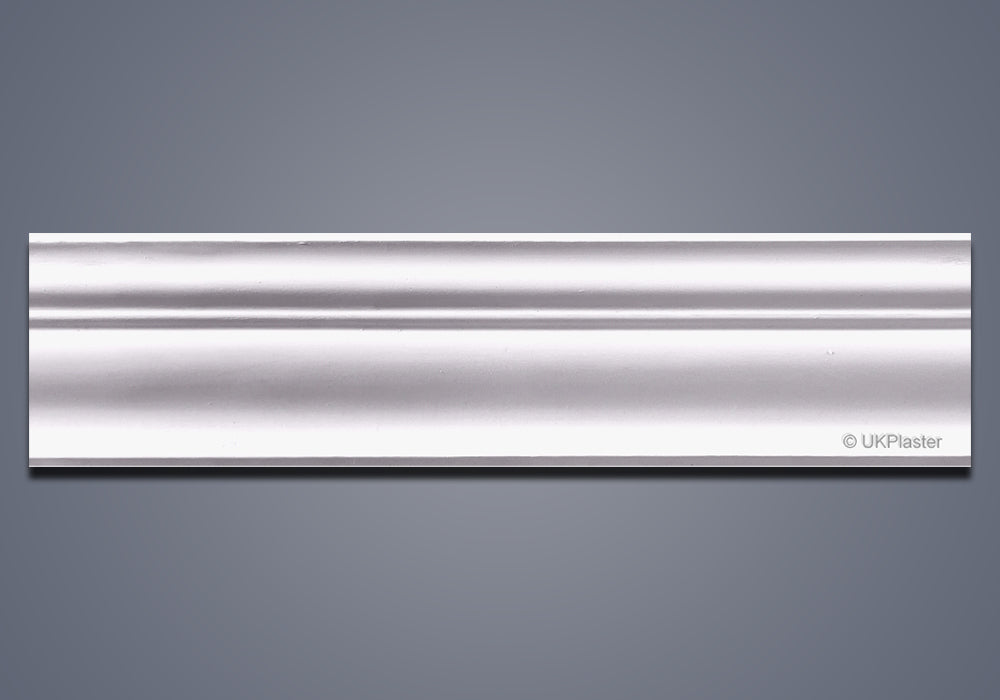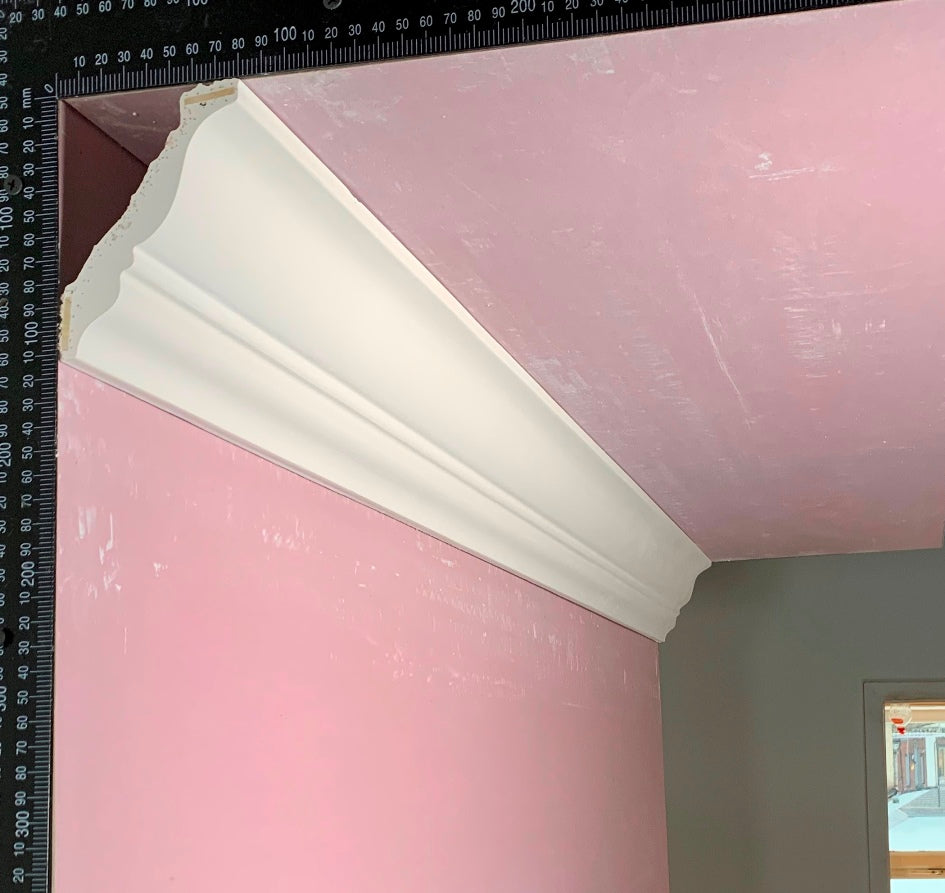Plaster Cornice Run CN196
Plaster Cornice Run CN196
SKU:CN196
Profile: 110 mm (wall) x 79 mm (ceiling)
Suitable for room heights up to 8ft 6, this Plaster Cornice run is sold in 3m lengths.
Designed to fit seamlessly into most interior design schemes, this Plaster Cornice run is suitable for room heights up to 8ft 6, making it a versatile choice for any project.
Can be fitted either way up.
Each run is sold in 3m lengths, providing plenty of coverage for larger spaces.
Product features
Product features
All of our products are hand made to order with high quality material.
Delivery information
Delivery information
Deliveries: Roses & Small items = we aim to Ship within 3-5 days.
For Cornice please allow 5-10 working days depending on the product.
We do confirm these details after you place your order.
Delivery price is calculated at the checkout.
Returns
Returns
Returns of non-faulty Goods shall only be refunded or replaced if you contact us within 7 days of receipt of the goods.
The goods must be returned in accordance with our standard authorisation procedure (please contact us on 01204 693 900 or info@ukplaster.com for details).
You can find our full refund policy here.
Couldn't load pickup availability



Total items
Product subtotal
You might also need
-
Gyproc Coving Adhesive 12.5kg
Regular price £38.20 + VATRegular priceUnit price per -
Herculite Fibrefix Adhesive 5kg
Regular price £23.20 + VATRegular priceUnit price per -
Gyproc Coving Adhesive 5kg
Regular price £18.85 + VATRegular priceUnit price per -
Fine Casting Plaster Plus 5kg
Regular price £15.50 + VATRegular priceUnit price per -
Fine Casting Plaster Plus 25kg
Regular price £36.00 + VATRegular priceUnit price per
Frequently asked questions
How do I choose the right ceiling rose for my room?
Ceiling roses are decorative plaster features that are typically installed in the center of a ceiling, often to enhance the look of a light fixture or chandelier. When choosing a ceiling rose, consider the size and style of your room.
For smaller rooms, opt for a more modest design to avoid overwhelming the space. For larger or more ornate rooms, you can select a larger and more intricate design.
Additionally, consider the period and architectural style of your property to ensure the ceiling rose complements your overall decor.
How do I install ceiling roses?
Installing ceiling roses and plaster coving requires precision and care. For ceiling roses, start by marking the center point on the ceiling where you want to install it.
Apply a suitable adhesive to the back of the rose and press it firmly into place. Ensure it is level and secure.
Can I paint plaster ceiling roses and coving?
Yes, you can paint plaster ceiling roses and coving to match your room's decor.
It's best to use a water-based paint for plaster. Before painting, ensure the plaster is fully dry and clean. Apply a primer or a mist coat (a watered-down paint mixture) first to seal the surface, followed by your chosen topcoat.
Use a fine brush for detailed areas to achieve a smooth and even finish. Painting plaster features can help them blend seamlessly with your room or make them stand out as a decorative focal point.
How do I maintain and clean plaster products?
Maintaining and cleaning plaster ceiling roses and coving is relatively simple.
To keep them dust-free, regularly dust with a soft cloth or feather duster. For more thorough cleaning, use a damp cloth with a mild detergent.
Avoid using abrasive cleaners or tools, as they can damage the plaster. If you notice any cracks or chips, these can often be repaired with a bit of plaster filler and paint.
Regular inspection and gentle cleaning will help keep your plaster features looking their best.
Are plaster products suitable for all types of ceilings?
Plaster ceiling roses and coving are versatile and can be used on most types of ceilings, including flat, sloped, and even some vaulted ceilings.
However, it's important to consider the structural integrity of your ceiling before installation.
For older buildings or ceilings with significant damage, it might be necessary to make repairs or reinforce the area to ensure it can support the weight of the plaster.
If you're unsure, consulting a professional can help determine the best approach for your specific ceiling type.








